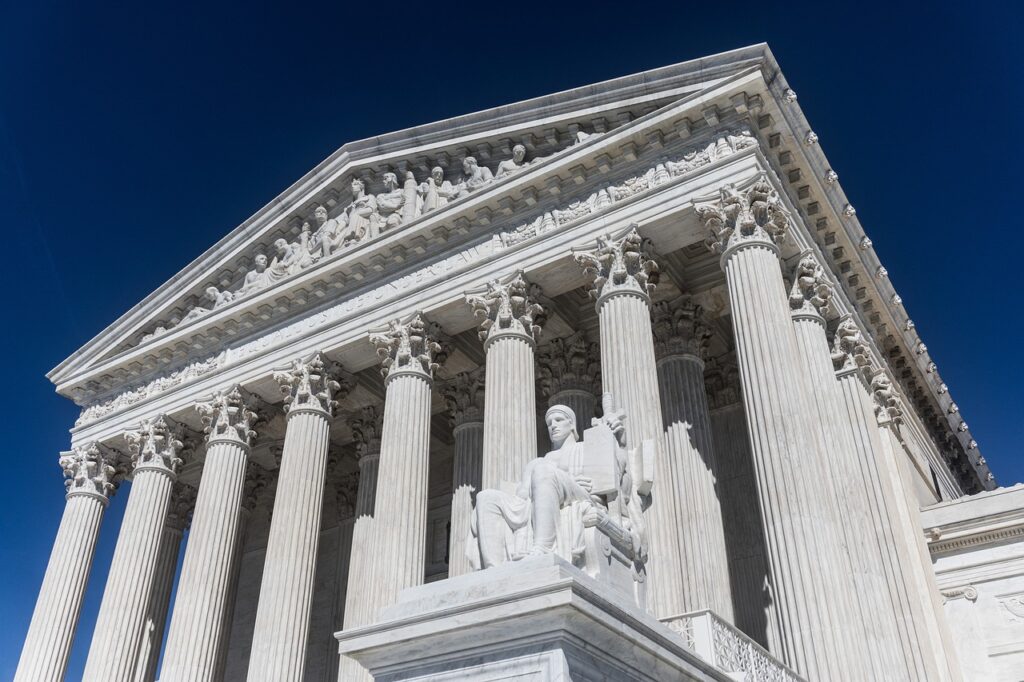The Trump administration has taken a dramatic step by removing 20 immigration judges, causing concerns about the already overburdened U.S. immigration court system. The move is part of a broader effort to expedite deportations and reduce the size of the federal workforce. The timing of the decision raises questions about the administration’s approach to immigration reform and its impact on the functioning of the courts.
Sudden Dismissals Impact Immigration Courts
On Friday, the Department of Justice dismissed 13 immigration judges who were awaiting their official swearing-in. Additionally, five assistant chief immigration judges were let go. Earlier in the week, two more judges were also dismissed under similar circumstances. The dismissals have added to the uncertainty surrounding the immigration courts, which are already dealing with a backlog of 3.7 million cases.
The Executive Office for Immigration Review (EOIR), which manages the immigration courts, has not yet provided details on whether these judges will be replaced. The office oversees nearly 700 immigration judges across the country. The firing of these judges, many of whom were in the process of assuming their positions, raises concerns about the administration’s commitment to addressing the growing number of asylum seekers and the backlog in the system.
A System Struggling to Cope
The immigration court system has been under strain for years, with asylum seekers often waiting years for a decision. Despite bipartisan efforts to address the problem by increasing judicial staffing, the backlog remains a significant issue. During Trump’s previous term, judges faced pressure to expedite decisions, which resulted in high caseloads and, at times, controversial rulings. The decision to remove the judges could further complicate efforts to reduce case delays and improve the system’s efficiency.
The move also comes at a time when the Justice Department has made sweeping changes to the leadership within the immigration courts. Recently, the administration replaced Mary Cheng, the former acting director of the EOIR, with a new director, Sirce Owen. Under Owen’s leadership, several policies from the Biden administration have been rolled back, including those designed to provide more flexibility for asylum seekers and reduce the use of expedited removal procedures.
These shifts in leadership and staffing come at a time when immigration-related policies are a focal point in the political debate. The Trump administration’s push for faster deportations and stricter immigration enforcement is at odds with efforts to provide more support and protections to immigrants, particularly those seeking asylum.
Legal and Political Repercussions
The firing of immigration judges has sparked significant backlash from advocacy groups, legal experts, and union representatives. Critics argue that the sudden dismissals undermine the credibility and stability of the immigration court system. With the backlog of cases continuing to grow, many fear that the loss of experienced judges will only worsen delays, making it even harder for asylum seekers to have their cases heard in a timely manner.
In addition to the dismissals, the administration has also sought to cut funding for legal aid groups that assist individuals facing deportation. These organizations provide crucial support to immigrants, helping them navigate the complex legal system. However, after a coalition of nonprofit organizations filed a federal lawsuit challenging the cuts, the funding was reinstated. This legal battle underscores the ongoing tension between efforts to limit government spending and the need to ensure that immigrants have access to legal representation.
Broader Push for Federal Workforce Reductions
The firings of immigration judges are part of a larger effort by the Trump administration to reduce the size of the federal workforce. Last Thursday, federal agencies were directed to lay off nearly all probationary employees who had not yet received civil service protections. This move could potentially affect hundreds of thousands of federal workers, further fueling concerns about the impact on the functioning of government agencies.
Union representatives have strongly criticized the dismissals, arguing that they are part of a broader attempt to weaken the federal workforce. Matthew Biggs, president of the International Federation of Professional and Technical Engineers, condemned the firings, calling them a reckless approach to workforce management. He stated, “They are treating these employees as disposable. It’s a reckless approach that could have long-term consequences for the effectiveness of government services.”
The firing of these judges, particularly those who were still in the process of being sworn in, has raised further questions about the Trump administration’s commitment to ensuring a fair and functioning immigration court system. As immigration courts continue to face an overwhelming caseload, the loss of judges will likely exacerbate the challenges the system already faces.
Uncertainty About the Future
The Justice Department has not yet provided an official statement on the reasoning behind the dismissals or whether new appointments will be made to replace the fired judges. As a result, the future of the immigration court system remains uncertain. The loss of these judges has left many questioning how the system will cope with the mounting backlog of cases and whether new policies will be introduced to address the ongoing challenges.
It is clear that the Trump administration’s push for faster deportations and workforce reductions is having a profound effect on the immigration court system. As immigration courts struggle to keep up with the demand for decisions, the removal of experienced judges may further complicate efforts to clear the backlog and ensure that immigrants receive fair hearings.
The impact of these firings will likely be felt for years to come. With the immigration court system already overwhelmed, the administration’s decision to cut staff and accelerate deportations could result in more delays, less access to legal representation, and greater uncertainty for immigrants navigating the U.S. immigration system.
The situation continues to evolve, and further developments are expected in the coming weeks. As this story unfolds, the public will be watching closely to see how the administration responds and what steps are taken to address the concerns raised by legal advocates, unions, and immigration experts. For more information, visit Financial Mirror.
